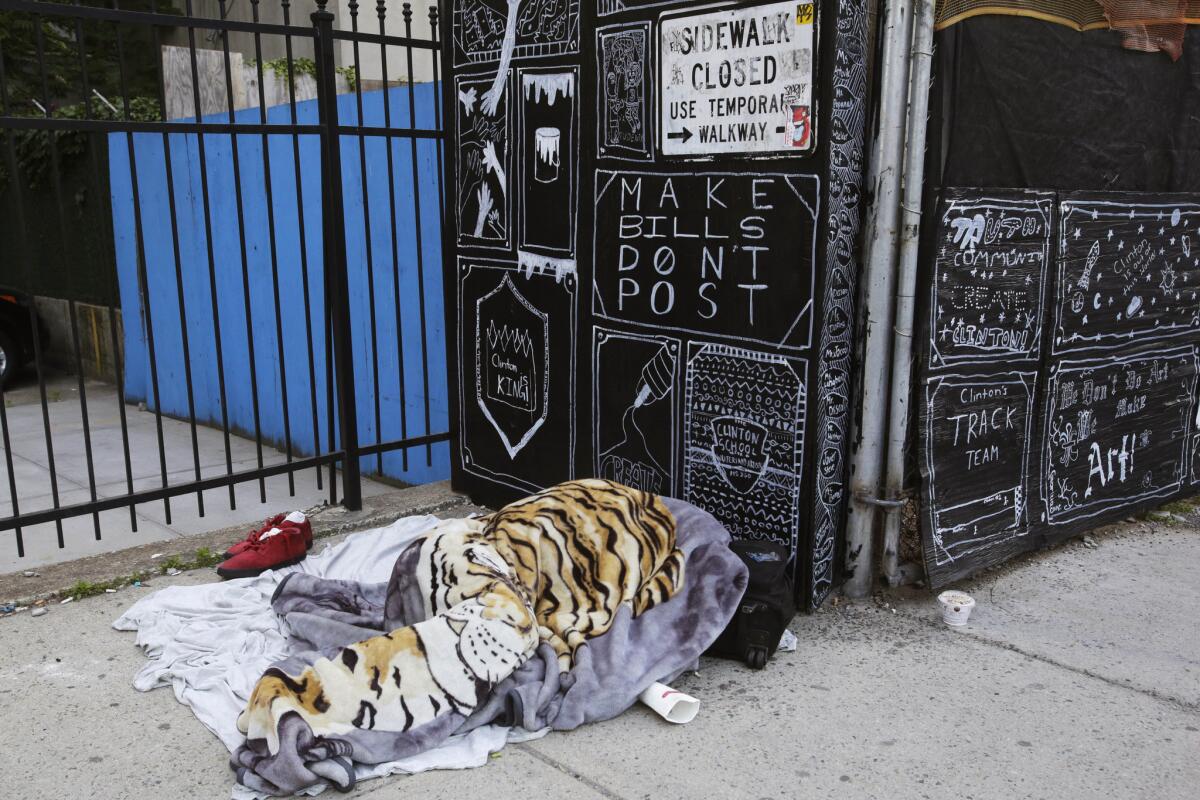Opinion: Should attacks on the homeless be classified as hate crimes?

- Share via
In 2006, I wrote a column for The Times questioning the wisdom of hate-crime laws that provide additional punishment for acts of violence if they are motivated by racial animus or some other kind of bigotry. One of my arguments was that as the idea became entrenched that the worst crimes are hate crimes, other groups of victims would have to be added to the definition.
I wrote:
“Call it the Jimmy Durante factor. Durante was the 1940s comedian whose catchphrase was: ‘Everybody wants to get into the act!’ And once legislatures began to enact hate-crimes laws, everyone — that is every constituency with political clout — got into the act of agitating to be included in hate-crime laws.’ ”
I went on to note that California’s hate-crime law provided enhanced penalties for “bias-motivated violence and intimidation” based on the victim’s race, ethnicity, religion, sexual orientation or physical or mental disability, and that New York’s hate-crime laws added age to the litany of protected categories. “Can veterans be far behind?” I asked.
There was one group of new hate-crime victims I didn’t anticipate: the homeless. But Rep. Eddie Bernice Johnson (D-Texas) is way ahead of me. She has introduced HR 1136, the Violence Against the Homeless Accountability Act of 2013.
Johnson’s bill doesn’t provide extra punishment for crimes against the homeless. But it would amend the Hate Crimes Statistics Act of 1990 to require the Justice Department to collect information about crimes against the homeless. Currently the department gathers data about crimes “that manifest evidence of prejudice based on race, religion, disability, sexual orientation or ethnicity.”
The National Coalition for the Homeless recently issued a report identifying 109 violent attacks committed against homeless people by non-homeless assailants last year, 18 of which were lethal. The title of the report is “Vulnerable to Hate: A Survey of Hate Crimes & Violence Committed Against the Homeless in 2013.”
But the report doesn’t live up to its name. It says: “These crimes are believed to have been motivated by the perpetrators’ biases against homeless individuals or by their ability to target homeless people with relative ease.” The latter explanation is the much more plausible one. The idea of an “anti-homeless” prejudice comparable to racism, anti-Semitism or even homophobia is far-fetched.
Indeed, when you read through the report’s summaries of supposed hate crimes, evidence of bias (as opposed to beastliness) is elusive. The only example I could find that arguably justified that characterization was the beating of a homeless man in Seattle by three other men, one of whom said: “You’re homeless; I’m going to beat your [expletive].”
I don’t object to keeping good statistics about attacks on the homeless; such information may prove useful to law enforcement and social service agencies. The problem is that once government starts classifying attacks on the homeless as hate crimes, even for record-keeping purposes, it won’t be long before someone proposes an extra punishment for crimes motivated by this “prejudice.”
Remember the Jimmy Durante problem. And as the list of protected groups gets longer and longer, the law will approach a situation in which every crime is a hate crime.
Follow Michael McGough on Twitter @MichaelMcGough3
More to Read
A cure for the common opinion
Get thought-provoking perspectives with our weekly newsletter.
You may occasionally receive promotional content from the Los Angeles Times.










